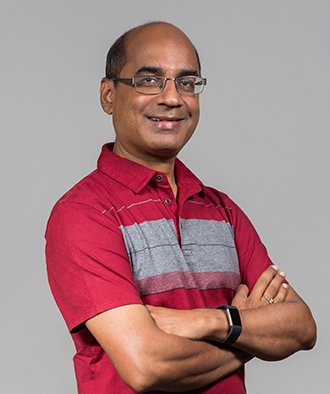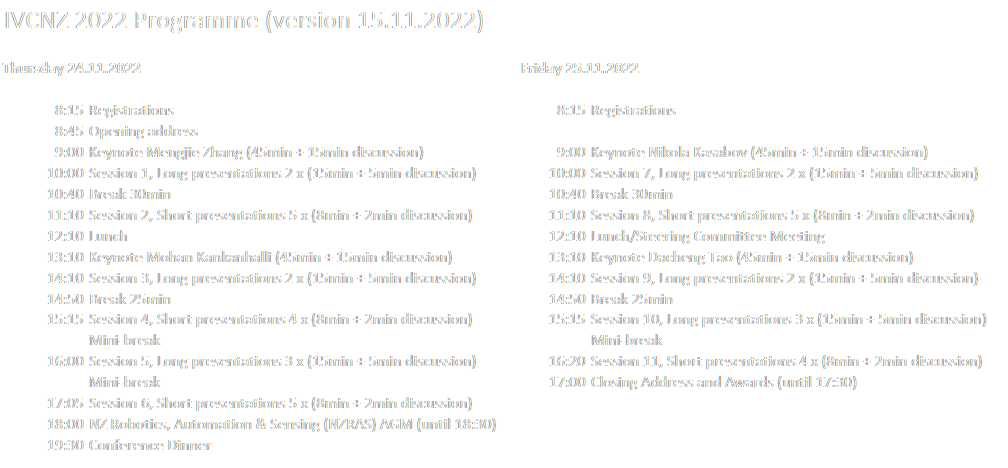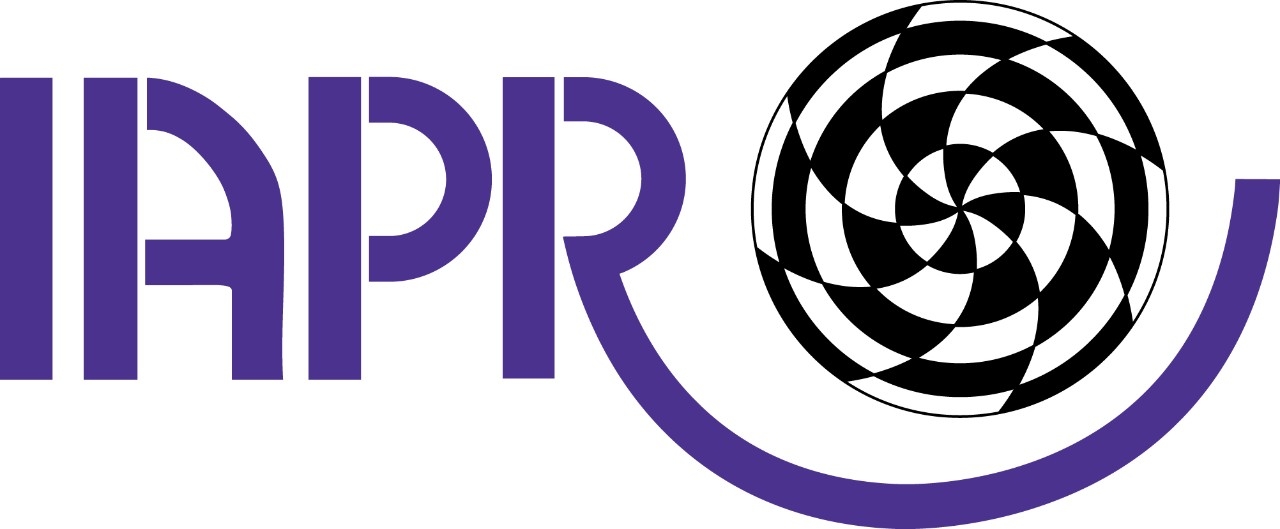About The Event
Image and Vision Computing New Zealand is New Zealand's premier academic conference on all aspects of computer vision, image processing, computer graphics, virtual and augmented reality, visualization, and HCI applications related to these fields. Accepted papers will be published in Lecture Notes in Computer Science LNCS - Springer.
Relevant topics include, but are not limited to:
- Artificial Intelligence approaches to computer vision
- Augmented and virtual reality
- Automated visual surveillance
- Biomedical imaging and visualization
- Biologically inspired vision systems
- Biometrics
- Calibration techniques
- Computer graphics
- Enhancement of video and still images
- Face recognition
- Feature detection and extraction
- Geometric modeling in vision and graphics
- Graph matching
- Image analysis and understanding
- Image based rendering
- Image compression and coding
- Machine vision applications
- Medical imaging applications
- Motion tracking and analysis
- Motion synthesis and control
- Multimedia information retrieval
- Novel algorithms or techniques
- Object recognition
- Pattern recognition and classification
- Reconstruction techniques
- Rendering and scientific visualization
- Scientific visualization
- Security image processing
- Shape recovery from multiple images
- Sonar and acoustical imaging
- Stereo image analysis
Important Dates
- Paper submissions: 1st October, 2022 (final extension)
- End of the review period: 30 October, 2022
- Notification of acceptance: 4 November, 2022
- Camera ready papers due: 13 November, 2022
- Conference: 24 - 25 November, 2022
Host
The conference will be hosted in Hybrid mode, by Auckland University of Technology (AUT), Auckland, New Zealand.
Organising Committee
- Wei Qi Yan
- Minh Nguyen
- Martin Stommel
- Contact us at: ivcnz2022@aut.ac.nz
Submission Guidelines
All accepted IVCNZ 2022 papers will be published in Lecture Notes in Computer Science LNCS - Springer. For proceedings templates, you can use either use LaTeX (click here to download, or use Overleaf Template) or Words (click here to download) for the preparation of the papers.
As a general guideline, submitted articles should be 12-15 pages of around 400 words each, single-column.
Springer encourages authors to include ORCIDs in their papers. In addition, the corresponding author of each paper, acting on behalf of all of the authors of that paper, must complete and sign a Consent-to-Publish form. The corresponding author signing the copyright form should match the corresponding author marked on the paper. Once the files have been sent to Springer, changes relating to the authorship of the papers cannot be made.
This conference uses double-blind review, which means that both the reviewer and author identities are concealed from the reviewers, and vice versa, throughout the review process.
Go to Submission Page (Click here) | Go to Registration Page (Click here)
Keynotes
-
24 Nov 2022 9 am Speaker: Professor Mengjie Zhang, Victoria University of Wellington

- Time: 24 Nov 2022 9 am
- Title: Evolutionary Machine Learning: Research, Applications and Challenges
- Abstract: Since the 1990s, evolutionary computation techniques have been widely used to solve machine learning tasks. In this talk, I will firstly provide a brief overview of machine learning and evolutionary computation, then focus on the main paradigms of evolutionary machine learning and their success in classification, feature selection, regression, clustering, computer vision and image analysis, scheduling and combinatorial optimisation, and evolutionary deep learning. The main challenges and applications will be discussed. If time allows, I will provide an overview of our recent work and discuss potential opportunities.
- Short Bio: Mengjie Zhang is a Fellow of Royal Society of New Zealand, a Fellow of Engineering New Zealand, a Fellow of IEEE, an IEEE Distinguished Lecturer, currently Professor of Computer Science at Victoria University of Wellington, where he heads the interdisciplinary Evolutionary Computation and Machine learning Research Group. He is the Associate Dean (Research and Innovation) for the Faculty of Engineering, and also leading the strategic initiative for Data Science and Artificial Intelligence at the University. His research is mainly focused on AI, machine learning and big data, particularly in evolutionary computation and learning, feature selection/construction and big dimensionality reduction, computer vision and image analysis, scheduling and combinatorial optimisation, classification with unbalanced data and missing data, and evolutionary deep learning and transfer learning. Prof Zhang has published over 800 research papers in refereed international journals and conferences. He has been serving as an associated editor for over ten international journals including IEEE Transactions on Evolutionary Computation, IEEE Transactions on Cybernetics, the Evolutionary Computation Journal (MIT Press), and involving major AI and EC conferences as a chair such as GECCO, IEEE CEC, EvoStar, IJCAI, AAAI, PRICAI, PAKDD. He has also been serving as a steering committee member and a program committee member for over 100 international conferences. Since 2007, he has been listed as one of the top ten (currently No. 4) world genetic programming researchers by the GP bibliography (http://www.cs.bham.ac.uk/~wbl/biblio/gp-html/index.html). Prof Zhang is currently the Chair of the IEEE CIS PubsCom Strategic Planning (sub)Committee, the Chair of the IEEE CIS Outstanding PhD Dissertation Award (sub)Committee, a past Chair of the IEEE CIS Intelligent Systems Applications Technical Committee, the IEEE CIS Emergent Technologies Technical Committee and the IEEE CIS Evolutionary Computation Technical Committee, and the founding chair of the IEEE Computational Intelligence Chapter in New Zealand.
24 Nov 2022 1 pm Speaker: Mohan Kankanhalli, School of Computing, National University of Singapore

- Time: 24 Nov 2022 1 pm
- Title: Combining Deep Networks and Logic for Computer Vision
- Abstract: There has been a long-running debate between connectionists and symbolists about how knowledge should be represented and utilized in artificial intelligence (AI) systems. The symbolic representations, like logic formulas and knowledge graphs, are concise and explainable but lack scalability and flexibility. On the other hand, connectionist representations, like those learned by deep networks from data, are flexible, scalable and expressive but are hard to explain. These complementary characteristics make it natural to combine both paradigms. Specifically, employing connectionist methods for perception allow us to handle complexities and uncertainties in sensory inputs, while applying symbolic methods for reasoning allow us to reason over perceptual information in a deterministic and explainable manner. In this talk, we will introduce two of our recent works, which aim to combine deep networks and logic for visual relation classification and temporal action segmentation. We will show that providing symbolic knowledge to deep learning models results in interesting improvements in model performance and explainability. We will also share our thoughts on how computer vision models can further develop in this direction.
- Short Bio: Mohan Kankanhalli is Provost's Chair Professor of Computer Science at the National University of Singapore (NUS). He is also the Dean of NUS School of Computing. Before becoming the Dean in July 2016, he was the NUS Vice Provost (Graduate Education) during 2014-2016 and Associate Provost during 2011-2013. Mohan obtained his BTech from IIT Kharagpur and MS & PhD from the Rensselaer Polytechnic Institute. His research interests are in Multimedia Computing, Computer Vision and Multimedia Security & Privacy. He has made many contributions in the area of multimedia & vision – image and video understanding, data fusion, visual saliency as well as in multimedia security – content authentication and privacy, multi-camera surveillance. Mohan is a Fellow of IEEE.
-
25 Nov 2022 9 am Speaker: Professor Nikola (Nik) K Kasabov, Auckland University of Technology

- Time: 25 Nov 2022 9 am
- Title: Why Use Brain-Inspired (Neuromorphic) Computation for Computer Vision?
- Abstract: Inspired by principles of the human brain, neuromorphic computation offers endless opportunities for computer vision. The talk demonstrates that spiking neural networks (SNN), named as the third generation of artificial neural networks, can be used to build brain-inspired SNN systems (BI-SNN) that are capable of deep, incremental, life-long learning of temporal or spatio/spectro -temporal data. And something more, they are explainable models that can be interpreted for a better understanding of the data and the sources that generated them Similarly, to how the brain learns, these BI-SNN models do not need to be restricted in number of layers, neurons in each layer, etc. as they adopt self-organising learning principles of the brain. This is different from the traditional deep learning neural networks that usually have fixed structures and are difficult to adapt to new data and to obtain explanation. Highly parallel and low power neuromorphic hardware chips and super-computing platforms are now available, but they require suitable computational models to manifest their full advantages, especially in computer vision. The talk presents some methods of SNN and BI-SNN, illustrated on an exemplar BI-SNN architecture NeuCube that is built according to a 3D brain spatial template (free software and open source along with a cloud-based version available from www.kedri.aut.ac.nz/neucube). Through learning, a NeuCube BI-SNN model creates connectionist representation of spatio-temporal patterns from data that can be explained as symbolic, spatio-temporal fuzzy rules. Computer vision applications are demonstrated for: classification of longitudinal neuroimage data; personalised predictive modelling of integrated neuroimage MRI and EEG brain signals; fMRI data modelling; moving object recognition using DVS (Dynamic Vision Sensors) data learned incrementally in a NeuCube model with the use of a novel retinotopic method; audio-visual data; multimodal environmental multisensory data. Future directions of the use of neuromorphic computation for computer vision are discussed.
- Short Bio: Professor Nikola (Nik) K Kasabov is Life Fellow of IEEE, Fellow of the Royal Society of New Zealand, Fellow of the INNS College of Fellows, DVF of the Royal Academy of Engineering UK. He is the Founding Director of KEDRI and Professor at the School of Engineering, Computing and Mathematical Sciences at Auckland University of Technology, New Zealand. He is also George Moore Chair Professor of Data Analytics at the University of Ulster UK, Honorary Professor at the Teesside University UK and the University of Auckland NZ, Visiting Professor at the IICT Bulgarian Academy of Sciences and Peking University in Shenzhen. Kasabov is Past President of the Asia Pacific Neural Network Society (APNNS) and the International Neural Network Society (INNS). He has been a chair and a member of several technical committees of IEEE Computational Intelligence Society and Distinguished Lecturer of IEEE (2012-2014). He is Editor of Springer Handbook of Bio-Neuroinformatics, EIC of Springer Series of Bio-and Neuro-systems and co-EIC of the Springer journal Evolving Systems. He is Associate Editor of several journals, including Neural Networks, IEEE TrNN, Tr CDS, Information Sciences, Applied Soft Computing. Kasabov holds MSc and PhD from TU Sofia, Bulgaria. His main research interests are in the areas of neural networks, intelligent information systems, soft computing, bioinformatics, neuroinformatics. He has published more than 700 publications, highly cited internationally. He has extensive academic experience at various academic and research organisations in Europe and Asia, including: TU Sofia Bulgaria; University of Essex UK; University of Otago, NZ; Shanghai Jiao Tong University and CASIA China, ETH/University of Zurich. He is currently a Visiting Professor at the IICT Bulgarian Academy of Sciences, Peking University in Shenzhen and Dalian University China. Kasabov has received a number of awards, among them: Doctor Honoris Causa from Obuda University; INNS Ada Lovelace Meritorious Service Award; NN journal Best Paper Award for 2016; APNNA ‘Outstanding Achievements Award’; INNS Gabor Award for ‘Outstanding contributions to engineering applications of neural networks’; EU Marie Curie Fellowship; Bayer Science Innovation Award; APNNA Excellent Service Award; RSNZ Science and Technology Medal; 2015 AUT NZ Medal; Medal “Bacho Kiro” of the SU Pavlikeni, Honorary Member of the Bulgarian, the Greek and the Scottish Societies for Computer Science, Honorary Citizen of Pavlikeni – Bulgaria. Born Svistov Bulgaria. Daughters: Kapka Kassabova, Assia Kassabova. Wife: Diana Kassabova. More information of Prof. Kasabov can be found from: https://academics.aut.ac.nz/nkasabov.
25 Nov 2022 1 pm Speaker: Professor Dacheng Tao, The University of Sydney

- Time: 25 Nov 2022 1 pm
- Title: More Is Different: ViTAE elevates the art of computer vision
- Abstract: Big data contains a tremendous amount of dark knowledge. The community has realized that effectively exploring and using such knowledge is essential to achieving superior intelligence. How can we effectively distill the dark knowledge from ultra-large-scale data? One possible answer is: "through Transformers". Transformers have proven their prowess at extracting and harnessing the dark knowledge from data. This is because more is truly different when it comes to Transformers. In this talk, I will showcase our recent work on transformers named ViTAE, on many dimensions of “more” including: model parameters, labeled and unlabeled data, prior knowledge, computing resource, tasks, and modalities. Specifically, ViTAE has more model parameters and more input modality support; ViTAE can absorb and encode more data to extract more dark knowledge; ViTAE is able to adopt more prior knowledge in the form of biases and constraints; ViTAE can be easily adapted to larger-scale parallel computing resources to achieve faster training. ViTAE has been applied to many computer vision tasks and has proven its promise, such as image recognition, object detection, semantic segmentation, image matting, pose estimation, scene text understanding, and remote sensing. You can find the source code for this work at https://github.com/ViTAE-Transformer.
- Short Bio: Dacheng Tao is the Inaugural Director of the JD Explore Academy and a Senior Vice President of JD.com. He is also an advisor and chief scientist of the digital science institute in the University of Sydney. He mainly applies statistics and mathematics to artificial intelligence and data science, and his research is detailed in one monograph and over 200 publications in prestigious journals and proceedings at leading conferences. He received the 2015 Australian Scopus-Eureka Prize, the 2018 IEEE ICDM Research Contributions Award, and the 2021 IEEE Computer Society McCluskey Technical Achievement Award. He is a fellow of the Australian Academy of Science, the World Academy of Sciences, the Royal Society of NSW, AAAS, ACM, IAPR and IEEE."

(*) all given times are written in NZ local time (Auckland/Wellington).
Venue:
- Online or on-campus
- AUT City Campus
- WF Building, Level 7
- 42 Wakefield Street
- Auckland 1010
- In case of very low numbers of on-campus registrations, we might change to a nearby room on the same campus.
Conference Dinner:
- Conference Dinner will be at Palm Cafe, 2/5 Graham Street, Auckland Central, click here for the direction.
- Menu:

Hotel:
- AUT is located right in the central business district and there are about 40 hotels in walking distance. Participants need to arrange their own accomodation (we don't endorse any particular hotel and we don't provide accommodation).
IVCNZ PC Members:
- Waleed Abdulla, The University of Auckland
- Qurrat Ul Ain, Victoria University of Wellington
- Aisha Ajmal, Victoria University of Wellington
- Harith Al-Sahaf, Victoria University of Wellington
- Donald Bailey, Massey University
- Andrew Bainbridge-Smith, University of Canterbury
- Oliver Batchelor, University of Canterbury
- Boris Bačić, Auckland University of Technology
- Ying Bi, Victoria University of Wellington
- Phil Bones, University of Canterbury
- Will Browne, Queensland University of Technology
- Stefano Cagnoni, University of Parma
- Kwok-Ping Chan, The University of Hong Kong
- Joe Chen, University of Canterbury
- Qi Chen, Victoria University of Wellington
- Tai-Yin Chiu, University of Texas at Austin
- Richard Clare, University of Canterbury
- Michael Cree, University of Waikato
- Jinshi Cui, Peking University
- Jeremiah D. Deng, University of Otago
- Mansoor Ebrahim, Iqra University
- Jaco Fourie, Lincoln Agritech Ltd
- Xiping Fu, University of Otago
- Chiou-Shann Fuh, National Taiwan Univ
- Yongsheng Gao, Griffith University
- Alfonso Gastelum Strozzi, UNAM/CCADET
- Akbar Ghobakhlou, Auckland University of Technology
- Hamid Gholamhosseini, Auckland University of Technology
- Andrew Gilman, PlantTech Research Institute
- Richard Green, University of Canterbury
- Anthony Griffin, Auckland University of Technology
- Christopher Hollitt, Victoria University of Wellington
- Aarij Hussaan, Iqra University
- Xiaoyi Jiang, University of Münster
- Scott King, Texas A&M University - Corpus Christi
- Huy Le, Auckland University of Technology
- Andrew Lensen, Victoria University of Wellington
- Shen Hin Lim, University of Waikato
- Jorge Alberto Marquez Flores, Universidad Nacional Autónoma de México
- Stephen McNeill, Landcare Research New Zealand
- Brendan Mccane, University of Otago, New Zealand
- Yi Mei, Victoria University of Wellington
- Steven Mills, University of Otago
- Kourosh Neshatian, University of Canterbury
- Jean Francois Nezan, INSA Rennes, IETR laboratory
- Bach Nguyen, Victoria University of Wellington
- Minh Nguyen, Auckland University of Technology
- Binh P. Nguyen, Victoria University of Wellington
- Mukku Nisanth Kartheek, Institute for Development and Research in Banking Technology & National Institute of Technology Warangal
- Mohammad Norouzifard, University of Auckland
- Kapila Pahalawatta, Lincoln Agritech ltd
- Simon Park, Open Polytechnic
- Tuan Pham, Prince Mohammad Bin Fahd University
- Sanjoy Pratihar, Indian Institute of Information Technology Kalyani
- Ibrahim Rahman, The Openpolytechnic of New Zealand
- Atiya Rana, Iqra University
- Ramesh Rayudu, Victoria University of Wellington
- Mariano Rivera, Centro de Investigacion en Matematicas AC
- Mahdi Setayesh, Microsoft
- Abubakar Siddique, Victoria University of Wellington
- Martin Stommel, Auckland University of Technology
- Lee Streeter, University of Waikato
- Lech Szymanski, University of Otago
- Rachael Tighe, University of Waikato
- Martin Urschler, The University of Auckland
- Zhiyong Wang, The University of Sydney
- Stephen Weddell, University of Canterbury
- Henry Williams, The University of Auckland
- David Wilson, Auckland University of Technology
- Brendon J. Woodford, University of Otago, New Zealand
- Burkhard Wuensche, The University of Auckland
- Bing Xue, Victoria University of Wellington
- Weiqi Yan, Auckland University of Technology
- Yu-Bin Yang, Nanjing University, China
- Chun Hong Yoon, SLAC National Accelerator Laboratory
- Mengjie Zhang, Victoria University of Wellington
- Fanglue Zhang, Victoria University of Wellington
- Junhong Zhao, Victoria University of Wellington
- Shihua Zhou, Dalian University
Local Support
- Finances: Terry Brydon, School of Engineering, Computer & Mathematical Sciences, AUT
- Miscellaneous: Centre for Robotics and Vision, AUT
Sponsors
- School of Engineering, Computer & Mathematical Sciences, AUT: $5000.00
- Department of Computer Science & Software Engineering, AUT: $2500.00
Past Conferences
- IVCNZ 2021, hosted by the University of Waikato
- IVCNZ 2020, hosted by Victoria University of Wellington
- IVCNZ 2019, hosted by the University of Otago

